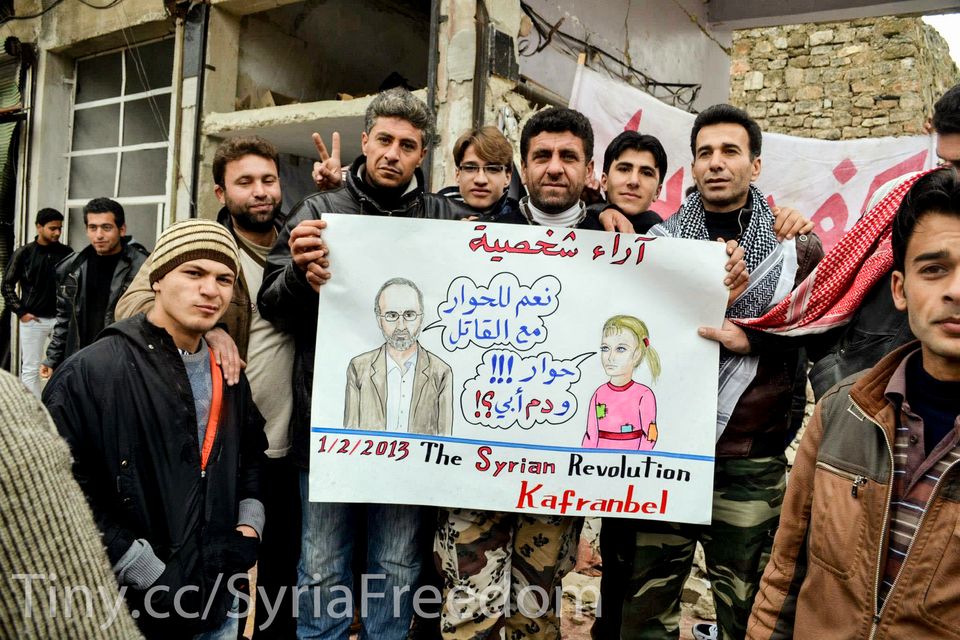
Keeping faith in transitional justice
If ever a war-torn country could benefit from transitional justice, it is Syria. But as the conflict becomes more protracted and gruesome, many see transitional justice as a distant mirage, faraway and illusory. While feelings of pessimism are justified, it is more important than ever that Syrians believe that transitional justice will increase accountability and peace. This faith itself will determine, in part, the success of transitional justice efforts.
Critics of transitional justice mechanisms emphasize that they can’t fix all the problems and that they are idealistic. The first point is certainly true, no single endeavor can solve all the likely post-conflict problems. As the Editorial Note in March’s International Journal of Transitional Justice admits, “Transitional justice has been presented as the ingenious quick remedy for addressing a range of social ills.” This is unfortunate, and proponents of TJ should communicate realistic expectations about what TJ can achieve, or else face “a backlash against transitional justice mechanisms that fail to deliver on their overblown promises.”
On the other hand, the claim that transitional justice is idealistic is quite far from the truth. One of the reasons that transitional justice mechanisms are seen as idealistic is because they attempt to address vast and complicated issues, sometimes including fostering national unity, preventing ethnic conflict, distributing reparations, and facilitating institutional growth. If the problems were simple, transitional justice wouldn’t be needed in the first place. But rather than idealistic, the mechanisms employed are pragmatic— they are specifically designed to confront the apparently intractable issues that arise in the wake of conflict and large-scale crimes and right violations.
Transitional justice is particularly pragmatic insofar as its processes and goals are defined by the participants within the affected society. Efforts typically involve wide-ranging and time-consuming input from citizens. Since community-participation and “truth-seeking” are often central mechanisms, it doesn’t make sense to define objectives and expectations before taking into account the needs, desires, and perspectives of those involved. Very little should be presumed about what transitional justice in Syria might look like. Ideas about reconciliation, prosecution, and lustration can’t be taken for granted.
So why should Syrians have any faith in transitional justice today, when well over 80,000 have been killed and chemical weapons continue to be deployed with little international reaction? First, tomorrow’s results depend on today’s actions. Evidence must be collected and protected now. Once lost, it is gone forever and useless to future accountability efforts. Alongside prosecutions, preserving interviews and records could also facilitate truth-seeking efforts to follow. Testimonies and stories from victims and others affected are best recorded in the moment. Afterwards, would-be witnesses may be dead. Recollections and narratives may change or become less reliable, and work done now can better reflect present circumstances uncolored by future events and post-conflict political considerations.
Second, though this point shouldn’t be exaggerated, there is the real chance that expectations of prosecution could affect actors’ decision-making. This is likely not a primary consideration and won’t stop the violence, but it can plant doubt and make actors think twice before resorting to violations of human rights or war crimes. As Peter Bouckaert of HRW wrote in Foreign Policy, there is a “pervasive climate of impunity currently plaguing Syria.” Such a climate does nothing to discourage even greater escalation of violence.
Transitional justice has the potential to hold perpetrators accountable, dampen political and social conflict, and foster the long process of healing. But it is not a panacea and it is not easy. Far from a self-fulfilling prophecy, transitional justice is the result of a combined societal undertaking. It is this communal element that needs broad support and faith.
Signup to receive the SJAC’s Weekly Updates here.
Follow us on Twitter at SJAC_info.